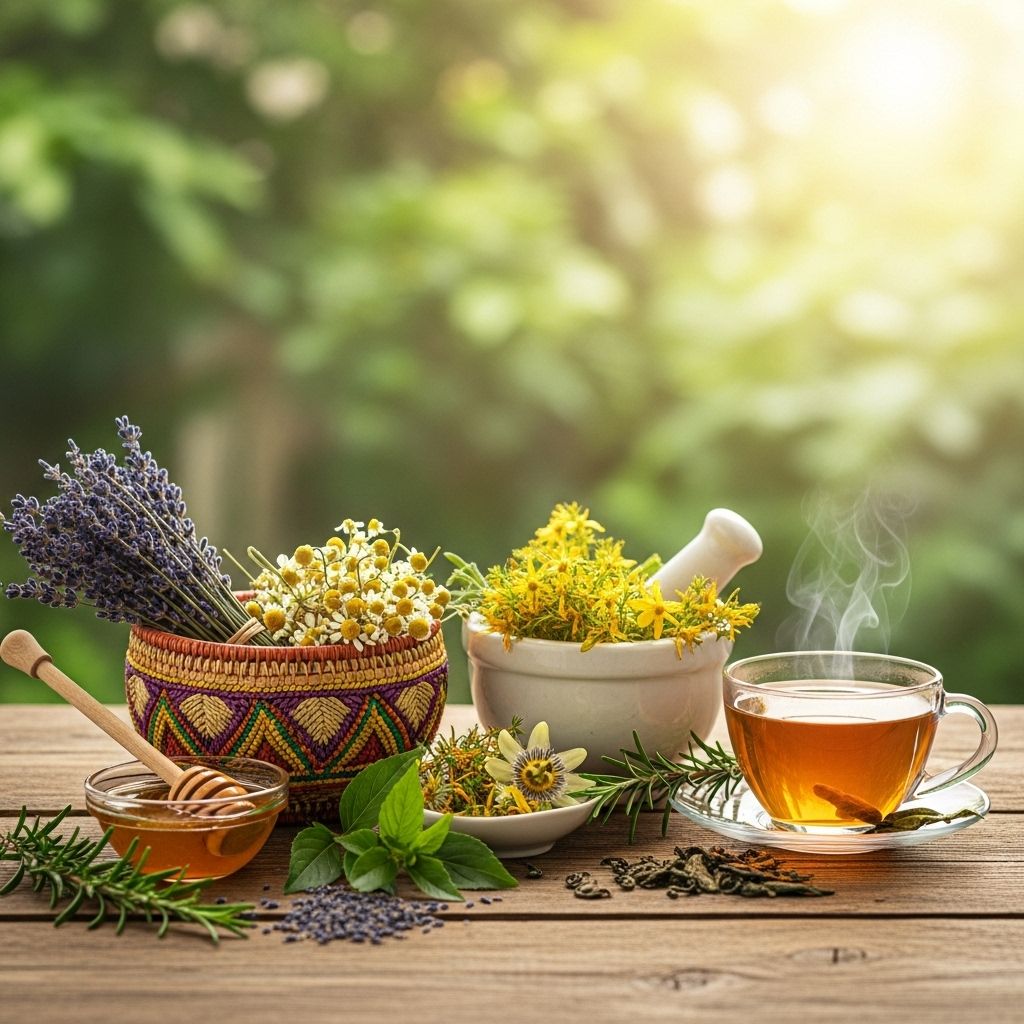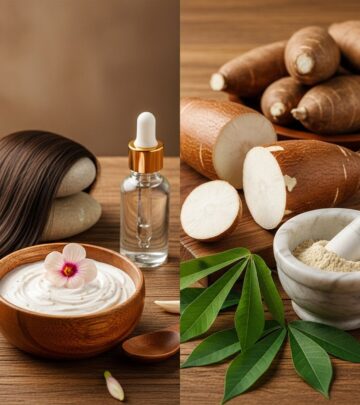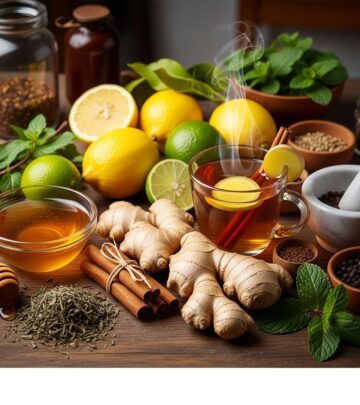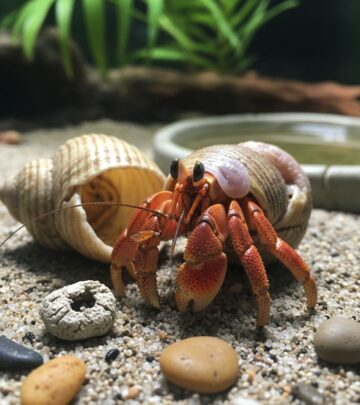Natural Remedies for Depression: Effectiveness and Safety
Investigate the science and safety behind popular natural remedies for depression—and why consulting your healthcare provider is crucial.

Natural Remedies for Depression: What You Need To Know
Major depressive disorder affects millions worldwide, prompting many to seek alternatives beyond conventional medications and psychotherapy. While natural remedies for depression—including herbal supplements and mind-body techniques—may offer hope, their safety, effectiveness, and role in treatment remain complex topics best navigated with expert help.
Are Natural Remedies for Depression Effective?
So-called natural remedies for depression, such as herbal or dietary supplements, are widely marketed. However, these approaches are not substitutes for professional diagnosis or evidence-backed treatment. Some individuals do experience benefits, but more research is needed to fully understand which supplements help and what side effects they might cause .
- Natural does not always mean safe.
- Supplements may interact with prescribed medications.
- Always consult your healthcare provider before using supplements or alternative treatments.
Common Herbal and Dietary Supplements for Depression
Many supplements are promoted for their potential mood-boosting effects. Here are some of the most widely discussed:
- St. John’s wort (Hypericum perforatum), a popular herbal supplement, is not approved by the FDA to treat depression in the United States. Some studies suggest benefits for mild or moderate depression, but there are serious risks—St. John’s wort can interfere with medications for heart conditions, blood thinners, birth control, cancer, HIV/AIDS, and post-transplant drugs. It can also cause dangerous interactions if combined with antidepressants .
- SAMe (S-adenosylmethionine) is a synthetic form of a natural compound found in the body. Though research is ongoing, and it’s not FDA-approved for depression in the U.S., some evidence suggests potential benefit. However, SAMe may trigger mania in people with bipolar disorder .
- Omega-3 fatty acids—found in cold-water fish, flaxseed, walnuts, and supplements—are under study for depression relief. While generally considered safe, large doses can interact with medications, and it’s not yet clear if dietary sources alone have a significant antidepressant effect .
| Supplement | Possible Benefits | Potential Risks |
|---|---|---|
| St. John’s Wort | Some benefit in mild/moderate depression | Serious drug interactions; photosensitivity; not FDA approved |
| SAMe | Possible mood improvement | Mania risk in bipolar disorder; not FDA approved |
| Omega-3 Fatty Acids | General health; possible adjunct for mood | Possible medication interactions at high doses |
Important: These supplements are not regulated like prescription medications by the FDA, so quality, strength, and purity may vary. Always confirm the source and consult a healthcare professional before starting any supplement [10].
Safety Concerns with Supplements
- Supplements may contain undisclosed ingredients or varied potency.
- Some can cause allergic reactions or interact dangerously with prescribed drugs.
- Always inform your doctor about any herbal or nutritional supplements you are taking.
Mind-Body Practices in Depression Management
Many integrative medicine approaches focus on fostering harmony between mind and body. These practices can be used along with medication and therapy—but not as replacements .
- Acupuncture
- Yoga and tai chi
- Meditation and guided imagery
- Massage therapy
- Music or art therapy
- Spirituality-based practices
- Aerobic exercise
While these methods may help alleviate stress and improve mood, scientific evidence regarding their benefit as sole therapies for depression is limited. They can, however, be valuable parts of a holistic approach .
Benefits of Mind-Body Approaches
- Can enhance relaxation and reduce stress
- May support emotional processing and self-expression
- Some approaches, like exercise, show measurable benefit in mild and moderate depression
Coping Strategies and Support Systems
In addition to conventional treatments and complementary remedies, day-to-day coping skills significantly shape depression outcomes. Your mental health team can help you build a toolkit for managing symptoms and preventing relapse .
- Simplify your life: Reduce obligations, set realistic goals, and allow yourself to rest when needed.
- Journaling: Writing about thoughts and emotions may improve mood by providing a safe outlet for pain, anger, or fear.
- Read reputable self-help materials: Your provider can recommend books and online resources tailored to depression recovery.
- Find community support: Organizations like the National Alliance on Mental Illness (NAMI) or the Depression and Bipolar Support Alliance offer education, groups, and peer counseling.
- Stay connected socially: Isolation can worsen symptoms. Regularly engage with family, friends, or support groups.
- Practice relaxation: Techniques such as meditation, progressive muscle relaxation, yoga, and tai chi help decrease stress.
- Organize your time: Keeping daily lists, using reminders, or planning your schedule can add structure and reduce overwhelm.
- Avoid major decisions when depressed: Wait until your mood improves to make significant life choices.
FAQs about Natural Remedies for Depression
Q: Can natural remedies replace prescribed antidepressants?
A: No. While some people use supplements or mind-body practices as adjuncts to their care, there is insufficient evidence that any natural remedy can substitute for medical treatment prescribed by a qualified healthcare provider. Stopping prescribed medication without guidance can be dangerous .
Q: Are herbal supplements always safe since they are ‘natural’?
A: Natural does not guarantee safety. Supplements can carry risks such as allergic reactions, dangerous drug interactions, and unpredictable potency or purity. The FDA does not strictly regulate supplements the way it does prescription drugs [10].
Q: Which supplement is best for depression?
A: No supplement is universally best. Research is ongoing, and results are mixed. St. John’s wort, SAMe, and omega-3s are all studied, but each carries specific risks and benefits. Never begin supplement use without discussing with your healthcare provider .
Q: Can mind-body techniques alone treat depression?
A: Mind-body practices like meditation, yoga, and exercise can help reduce stress and support well-being. However, for most people with moderate to severe depression, these should supplement—not replace—medical and psychotherapeutic care .
Q: What should I do before starting any alternative therapy?
A: Always talk to your healthcare professional or pharmacist before starting any supplement or alternative treatment for depression. Make sure you understand possible interactions, side effects, and evidence for effectiveness .
Summary Table: Key Points on Natural Remedies for Depression
| Remedy/Practice | Effectiveness | Risks/Precautions |
|---|---|---|
| St. John’s Wort | Mixed research, some mild/moderate benefit | Serious medication interactions; not FDA approved |
| SAMe | Possible benefit, more study needed | Can cause mania in bipolar disorder; not FDA approved |
| Omega-3s | Some evidence for adjunct use | High doses may interact with other medications |
| Mind-body approaches | Supportive as adjunct therapy | Ineffective alone for severe depression |
| Coping strategies | Improve outcomes when combined with treatment | Not a replacement for medical care |
Key Takeaways and Prevention Tips
- Seek professional care: Depression is a serious medical condition that often requires a combination of medication, therapy, and lifestyle approaches for best results.
- Use natural remedies wisely: There is no universal cure. Supplements and mind-body practices may help some people but should be considered adjunct, not primary, treatments.
- Consult your provider: Discuss any supplement, therapy, or lifestyle change with your healthcare professional to ensure safety and appropriateness for your individual health needs.
- Stay informed: Opt for evidence-based recommendations, and remain cautious of bold claims unsupported by scientific studies.
Additional Resources
- National Alliance on Mental Illness (NAMI): Offers education, support groups, and advocacy for those affected by depression.
- Depression and Bipolar Support Alliance: Provides peer support and resources online and locally.
- Employee assistance programs: Many workplaces offer confidential counseling and resource referrals.
- Mental health professionals: Psychiatrists, psychologists, and therapists can help guide your treatment and self-care choices.
Read full bio of medha deb











